- Home
- Linda Howard
Dream Man
Dream Man Read online
PRAISE FOR THE SENSATIONAL NOVELS OF NEW YORK TIMES BESTSELLING AUTHOR LINDA HOWARD
DREAM MAN
“Linda Howard makes our senses come alive…. She knows what romance readers want, and dares to be different.”
—Affaire de Coeur
“Sexy, very hard to put down.”
—The Newport Daily News (RI)
“The incomparable Linda Howard brings high-voltage power and hard-edged sensuality to this emotional roller coaster of a novel, which is sure to keep readers riveted until the final nailbiting conclusion. They don’t get much better than this.”
—Romantic Times
KILL AND TELL
“Linda Howard meshes hot sex, emotional impact, and gripping tension in this perfect example of what romantic suspense ought to be.”
—Publishers Weekly (starred review)
“An emotion-packed, suspenseful ride…. [Linda Howard’s] sensual stories will make your heart beat a little faster. Romantic suspense has never been better. Linda Howard proves that romance and danger are a heady combination.”
—Literary Times
“Linda Howard is a superbly original storyteller.”
—Iris Johansen, New York Times bestselling author of Dead Aim
OPEN SEASON
“A perfect mystery for a late summer weekend. It’s part romance with a dollop of suspense.”
—The Globe & Mail (Toronto)
“This book is a masterpiece. Howard hooks us with a devastating opening prologue, then paints such visual pictures of her characters that they live.”
—Rendezvous
“The irrepressible Daisy Minor has a way of freshening everything.”
—The Palm Beach Post
“A modern-day version of the fairy tale about the ugly duckling that grows into a magnificent swan….”
—The Orlando Sentinel (FL)
MR. PERFECT
“A frolicsome mystery….Jaine Bright lives up to her name: she’s as bright—and explosive—as a firecracker.”
—People
“Mr. Perfect really scores…. Part romance novel, part psychological thriller, [it] is both a frightening and funny look at the plight of the modern woman searching for an ideal mate.”
—New York Post
“There is nothing quite like a sexy and suspenseful story by the amazing Linda Howard! … Funny, exciting, gripping, and sensuous…. One of her all-time best!”
—Romantic Times
ALL THE QUEEN’S MEN
“A high-suspense romance…. Howard’s trademark darkly sensual style and intense, layered plot will delight her fans.”
—Booklist
“A fascinating novel of suspense and sensual tension.”
—Rendezvous
“[A] sexy thriller…. Another explosive hit.”
—Romantic Times
NOW YOU SEE HER
“Steamy romance morphs into murder mystery….”
—People
“An eerie, passionate, and thrilling tale….”
—Romantic Times
SON OF THE MORNING
“[A] romantic time-travel thriller with a fascinating premise … gripping passages and steamy sex.”
—Publishers Weekly
SHADES OF TWILIGHT
“Ms. Howard is an extraordinary talent…. [Her] unforgettable novels [are] richly flavored with scintillating sensuality and high-voltage suspense.”
—Romantic Times
AFTER THE NIGHT
“After the Night has it all…. Intense romance and mounting tension.”
—People
Thank you for downloading this Pocket Books eBook.
*
Join our mailing list and get updates on new releases, deals, bonus content and other great books from Pocket Books and Simon & Schuster.
CLICK HERE TO SIGN UP
or visit us online to sign up at
eBookNews.SimonandSchuster.com
This is dedicated to Joyce, Liz, Marilyn, Beverly, Cheri, and Kathy, for their encouragement and participation. To Gary, for taking care of me all those long months when I could barely walk. To Robin, for the pep talks. To Claire, for her patience. To Iris and Catherine and Fayrene and Kay, for the support. Thanks, guys.
1
IT WAS ELEVEN-THIRTY WHEN MARLIE KEEN LEFT THE Cinemaplex with the rest of the Friday night moviegoers. The movie had been a good one, a lighthearted romp that had made her laugh aloud several times and left her in a cheerful mood. As she walked briskly to her car, she thought she could tell which movie people had seen by how they were acting now. It wasn’t that difficult; the couples who were holding hands, or even exchanging kisses in the parking lot, had obviously seen the sexy romance. The aggressive bunch of teenage boys had seen the latest martial arts thriller. The well-dressed young professionals who were in earnest discussions had seen the latest Thelma and Louise imitation. Marlie was glad she had chosen the comedy.
It was as she was driving home on the brightly lit expressway that it hit her: She felt good. The best she had felt in years. Six years, to be precise.
In startled retrospect, she realized that she had been at peace for several months now, but she had been so caught up in the sedative routine of the life she had built here that she hadn’t noticed. For a long time she had simply existed, going through the motions, but time had done its slow work and eventually she had healed, like an amputee recovering from the loss of a limb and learning to cope, then to enjoy life again. Her loss had been mental rather than physical, and unlike an amputee, she had prayed through dark, endless nights that she never recover that part of herself. At some point in the past six years, she had stopped living in dread that the knowing would return, and simply gotten on with her life.
She liked being normal. She liked being able to go to movies the way normal people did, liked being able to sit in a crowd; she hadn’t been able to do that before. Several years ago, when she had realized it was actually possible, she had turned into a movie junkie for a while, visually gorging on the films that she thought were safe. For a long time any degree of violence was unbearable, but for the past couple of years she had been able to watch the occasional thriller, though they weren’t her favorite type. To her surprise, she hadn’t yet been able to watch any sex scenes; she would have thought that violence would have been immeasurably more difficult for her to handle, maybe even impossible, but instead it was the portrayal of intimacy that gave her problems. Dr. Ewell had been fond of saying that no one should ever lay bets on the human psyche, and she was amused to find he was right. The violence in her life had been traumatic, devastating, while the sex had been merely unpleasant, but it was the “love” scenes that still had her squeezing her eyes shut until it was over.
She exited off the expressway onto a four-lane street, and of course was caught by the traffic light at the bottom of the exit ramp. The radio was tuned to an easy-listening station and she inhaled deeply, feeling the slow music and the lingering lightheartedness of the movie combine in a delicious, physical sense of contentment—
—the knife flashed down, gleaming dully. A sodden, muffled THUNK! as it struck. The blade rose again, dripping red—
Marlie jerked back, an unconscious physical denial of the horribly real image that had just flashed in her mind. “No,” she moaned softly to herself. She could hear her own breathing, sharp and gasping.
“No,” she said again, though she already knew the protest was useless. Her hands were clenched on the steering wheel, white-knuckled, and even that wasn’t enough to stop the trembling that started at her feet and went all the way up. Dimly she watched her hands start shaking as the spasms intensified.
—Black, gloating pleasure. Triumph. Contempt—
It was happ
ening again. Dear God, it was coming back! She had thought herself free, but she wasn’t. The knowing was coming closer, growing, looming, and she knew from experience that soon it would overwhelm her. Clumsily, her coordination already deteriorating, she steered the car to the right, so she wouldn’t block the exit ramp. A car horn blared as she wavered too close to the vehicle beside her, but the noise was distant, muted. Her vision was fading. Desperately she braked to a stop and shoved the gear lever into park, hoping that she had managed to get completely out of traffic, but then the nightmare image was back, hitting her full strength like a beacon that had brushed by her in search before homing in.
Her hands fell limply into her lap. She sat in the car staring straight ahead, her eyes unblinking, unseeing, everything focused inward.
Her breathing became harsher. Rough sounds began to form in her throat, but she didn’t hear them. Her right hand lifted slowly from her lap and formed itself into a fist, as if she were gripping something. The fist twitched violently, three times, in a rigidly restrained stabbing motion. Then she was quiet again, her face as still and blank as a statue’s, her gaze fixed and empty.
It was the sharp rapping on the window beside Marlie that brought her back. Confused and exhausted, for a terrifying moment she had no idea who she was, or where, or what was happening. An unearthly blue light was flashing in her eyes. She turned a dazed, uncomprehending look at the man who was bent over, peering into the window as he tapped on it with something shiny. She didn’t know him, didn’t know anything. He was a stranger, and he was trying to get into her car. Panic was sharp and acrid in her mouth.
Then identity, blessed identity, returned with a rush and brought reality with it. The shiny thing the man was using to rap against the glass transformed itself into a flashlight. A glint on his chest became recognizable as a badge, and he, frown and commanding voice and all, was a policeman. His patrol car, Mars lights flashing, was parked at an angle in front of hers.
The images of horror were still too close, too frighteningly real. She knew she had to block it out or she wouldn’t be able to function at all, and she needed to get control of herself. Some vague danger was threatening, some memory that danced close to the surface but wouldn’t quite crystalize. Desperately she pushed away the fog of confusion and fumbled to roll down the window, fighting for the strength to complete even that small act. The exhaustion was bone-deep, paralyzing, muscles turned to mush.
Warm, humid air poured through the open window. The officer flashed the light beam around the interior of her car. “What’s the problem here, ma’am?”
She felt cotton-brained, thought processes dulled, but even so she knew better than to blurt out the truth. That would immediately get her hauled in on suspicion of being under the influence of some kind of drug, probably a hallucinogen. Yes, that was it; that was the vague danger she had sensed. A night in jail, for a normal person, would be bad enough; for her, under these circumstances, it could be catastrophic.
She had no idea how much time had passed, but she knew that she must look pale and drained. “Ah … I’m sorry,” she said. Even her voice was shaky. Desperately she sought for a believable explanation. “I—I’m an epileptic. I began to feel dizzy and pulled over. I think I must have had a slight seizure.”
The flashlight beam sought her face, played across her features. “Please step out of the car, ma’am.”
The trembling was back; she didn’t know if her legs would hold her. But she got out, holding to the open door for support. The blue lights stabbed her eyes, and she turned her head away from the brightness as she stood there pinned in the glare, a human aspen, visibly quaking.
“May I see your driver’s license?” Her limbs were leaden. It was an effort to retrieve her purse, and she dropped it immediately, the contents spilling half in the car, half on the ground. Innocuous contents, thank God; not even an aspirin bottle or pack of cigarettes. She was still afraid to take over-the-counter medications, even after six years, because the mental effects could be so unpredictable.
By concentrating fiercely, holding the crippling fatigue at bay, she managed to pick up her wallet and get out her license. The policeman silently examined it, then returned it to her. “Do you need help?” he finally asked.
“No, I’m feeling better now, e-except for the sh-shakes,” she said. Her teeth were chattering from reaction. “I don’t live far. I’ll be able to make it home.”
“Would you like for me to follow you, make sure you get there okay?”
“Yes, please,” she said gratefully. She was willing to tell any number of lies to keep from being taken to a hospital, but that didn’t mean she had lost her common sense. She was incredibly tired, the aftermath worse than she remembered. And there was still the nightmare image—knowing or memory, she couldn’t tell—to be dealt with, but she pushed it out of her mind. She couldn’t let herself think about it; right now she had to concentrate only on the tasks at hand, which were remaining coherent, upright, and functional, at least until she could get home.
The policeman helped her pick up her belongings, and in a few moments she was behind the wheel again, edging back onto the pavement, driving with excruciating care because every movement was such an effort. Twice she caught herself as her eyes were closing, the darkness of unconsciousness inexorably closing in.
Then she was home, turning in to the driveway. She managed to get out of the car and wave at the officer. She leaned against the car, watching him drive away, and only when he turned the corner did she set herself to the task of getting inside the house. To safety.
With weak, shaking, uncooperative hands she looped the strap of her purse around her neck, so she wouldn’t drop it.
After pausing for a moment to gather strength, she launched herself away from the car in the direction of the front porch.
As a launch, it was spectacularly lacking in power. She staggered like a drunk, her steps wavering, her vision fading.
Every movement became more and more difficult as the fatigue grew like a living thing, overwhelming her muscles and taking them from her control. She reached the two steps leading up to the porch and stopped there, swaying slowly back and forth, her blurred gaze fixed on those two steps that normally required no effort at all. She tried to lift her foot enough to take the first step, but nothing happened. She simply couldn’t do it. Iron weights were dragging around her ankles, holding her back.
She began to shiver, another familiar reaction from before, in that other life. She knew she had only a few minutes to get inside before she completely collapsed.
She dropped heavily to her knees, feeling the resulting pain as only a dull, distant sensation. She could hear her own harsh, strained breathing, echoing hollowly. Slowly, torturously, she dragged herself up the steps, fighting for each inch, fighting to keep the darkness at bay.
She reached the front door. Keys. She needed the keys to get in.
She couldn’t think. The black fog in her brain was paralyzing. She couldn’t remember what she had done with her keys. In her purse? Still in the car? Or had she dropped them? There was no way she could retrace her steps, no way she could remain conscious much longer. She began fumbling in her purse, hoping to find the key ring. She should be able to recognize it by touch; it was one of those stretchy bracelet things, the type that could be slid onto the wrist. She could feel metal, but it eluded her grasp.
Bracelet … She had slipped the keys onto her wrist. It was a habit so ingrained that she seldom even thought about it. The shaking was worse; she pulled the key ring off her wrist but couldn’t manage to fit the key into the lock. She couldn’t see, the blackness almost complete now. Desperately she tried again, locating the lock purely by touch, concentrating with her last fierce vestige of strength on the herculean task of guiding the key into the lock … Got it! Panting, she turned the key until she felt the click. There. Unlocked.
She mustn’t forget the keys, mustn’t leave them in the lock. She slid the bracelet back
onto her wrist as she twisted the doorknob and the door swung open, away from her. She had been leaning on the door, and with that support suddenly gone she sprawled in the doorway, half in and half out of the house.
Just a little more, she silently urged herself, and struggled to her hands and knees again. Get in far enough to close the door. That’s all.
It wasn’t really crawling now. She dragged herself in, whimpering with the effort, but she didn’t hear the noise. The door. She had to close the door. Only then could she give herself over to the blackness.
Her arm waved feebly, but the door was out of reach. She sent a command to her leg and somehow it obeyed, slowly lifting, kicking—a very weak kick. But the door swung gently shut.
And then the darkness overwhelmed her.
She lay motionless on the floor as the clock ticked away the hours. The gray dawn light penetrated the room. The passing morning was marked by the path of sunlight, shining through a window, as it moved down the wall and across the floor to finally fall on her face. Only then did she move in a restless attempt to escape the heat, and the deep stupor changed into a more normal sleep.
It was late afternoon when she began to rouse. The floor wasn’t the most comfortable of sleeping places; each shift of position brought a protest from her stiff muscles, nudging her toward consciousness. Other physical complaints gradually made themselves felt, a full bladder protesting the most insistently. She was also very thirsty.
She struggled to her hands and knees, her head hanging low like a marathon runner at the end of the race. Her knees hurt. She gasped at the sharp, puzzling pain. What was wrong with her knees? And why was she on the floor?
Dazedly she looked around, recognizing her own safe, familiar house, the cozy surroundings of the small living room. Something was tangled around her, hampering her efforts to stand—she fought the twisted straps and finally hurled the thing away from her, then frowned because it looked familiar, too. Her purse. But why had her purse straps been around her neck?
It didn’t matter. She was tired, so tired. Even her bones felt hollow.
She used a nearby chair to steady herself and slowly got to her feet. Something was wrong with her coordination; she stumbled and lurched like a drunk on the way to a common destination: the John. She found the comparison faintly humorous.

 Mr. Perfect
Mr. Perfect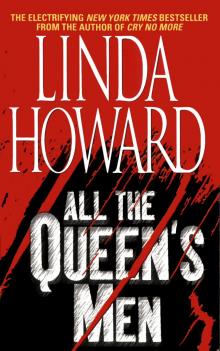 All the Queen's Men
All the Queen's Men Midnight Rainbow
Midnight Rainbow Diamond Bay
Diamond Bay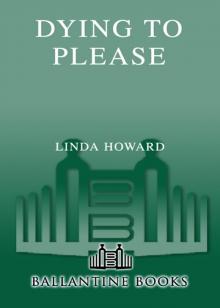 Dying to Please
Dying to Please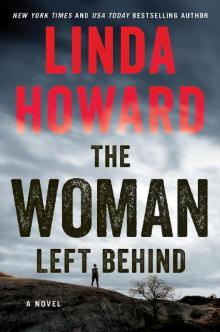 The Woman Left Behind
The Woman Left Behind Come Lie With Me
Come Lie With Me Drop Dead Gorgeous
Drop Dead Gorgeous To Die For
To Die For Ice
Ice Overload
Overload Shadow Woman
Shadow Woman Veil of Night
Veil of Night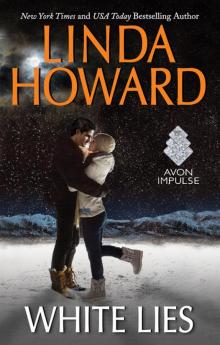 White Lies
White Lies Son of the Morning
Son of the Morning The Complete Mackenzies Collection
The Complete Mackenzies Collection Lake of Dreams
Lake of Dreams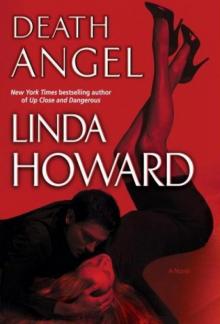 DeathAngel
DeathAngel Loving Evangeline
Loving Evangeline Burn
Burn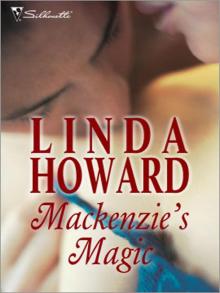 Mackenzie's Magic
Mackenzie's Magic Against the Rules
Against the Rules Burn: A Novel
Burn: A Novel A Lady of the West
A Lady of the West Almost Forever
Almost Forever Open Season
Open Season Now You See Her
Now You See Her Prey
Prey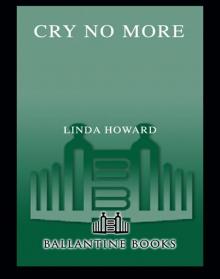 Cry No More
Cry No More Sarah's Child
Sarah's Child Angel Creek
Angel Creek Death Angel
Death Angel Kill and Tell
Kill and Tell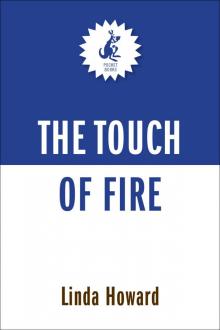 The Touch of Fire
The Touch of Fire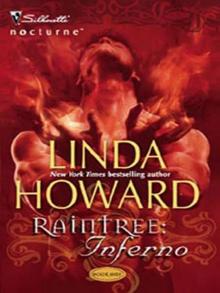 Raintree: Inferno
Raintree: Inferno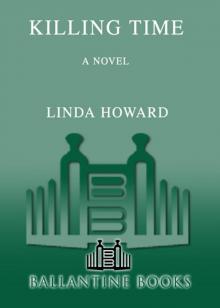 Killing Time
Killing Time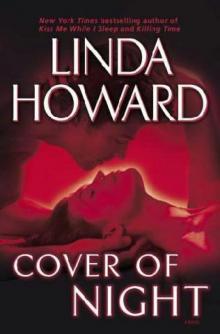 Cover of Night
Cover of Night Tears of the Renegade
Tears of the Renegade Heartbreaker
Heartbreaker The Cutting Edge
The Cutting Edge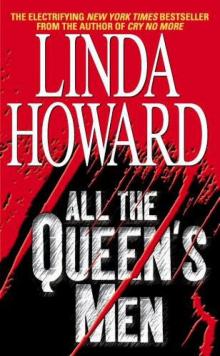 All The Queen's Men cs-2
All The Queen's Men cs-2 Veil of Night: A Novel
Veil of Night: A Novel Blood Born
Blood Born The Complete Mackenzie Collection
The Complete Mackenzie Collection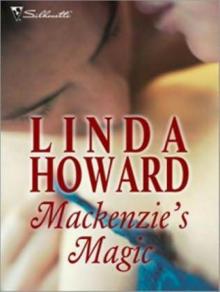 Mackenzie's Magic m-4
Mackenzie's Magic m-4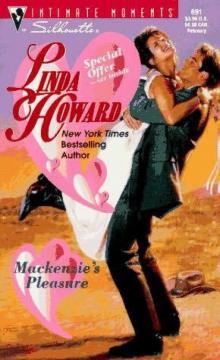 Mackenzie's Pleasure m-3
Mackenzie's Pleasure m-3 Raintree
Raintree A Game Of Chance m-5
A Game Of Chance m-5 Prey: A Novel
Prey: A Novel Lethal Attraction: Against the RulesFatal Affair
Lethal Attraction: Against the RulesFatal Affair The Raintree Box Set: Raintree: InfernoRaintree: HauntedRaintree: Sanctuary
The Raintree Box Set: Raintree: InfernoRaintree: HauntedRaintree: Sanctuary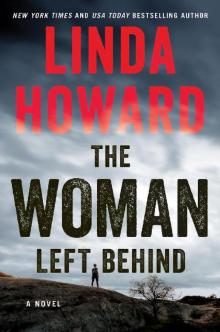 The Woman Left Behind: A Novel
The Woman Left Behind: A Novel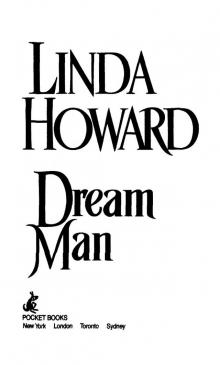 Dream Man
Dream Man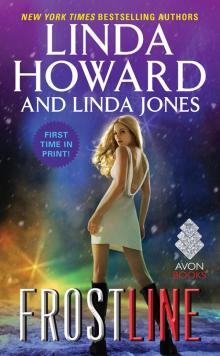 Frost Line
Frost Line Kill and Tell cs-1
Kill and Tell cs-1 Shadow Woman: A Novel
Shadow Woman: A Novel Mackenzie's Mission
Mackenzie's Mission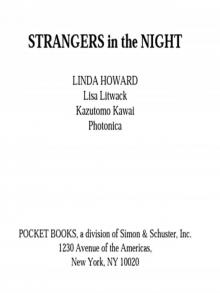 Strangers in the Night
Strangers in the Night Running Blind
Running Blind